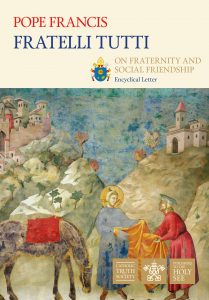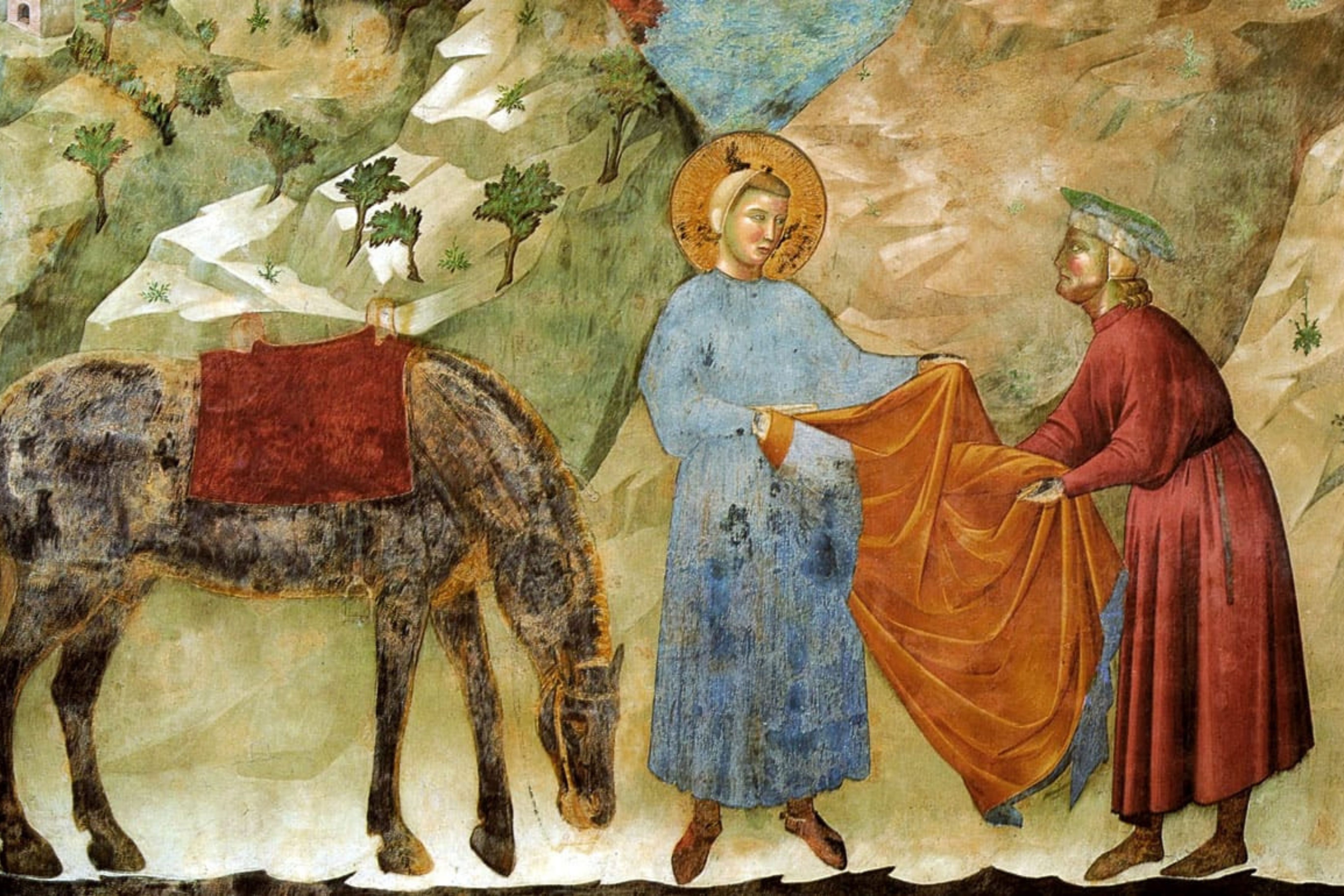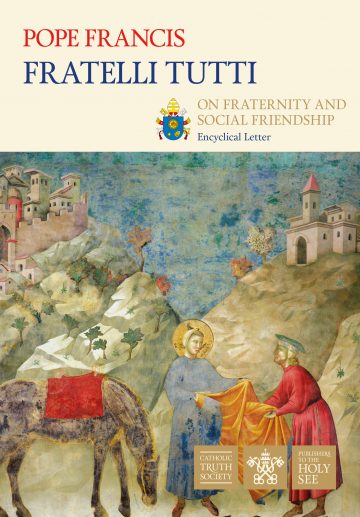1. Some parts of our human family, it appears, can be readily sacrificed for the sake of others considered worthy of a carefree existence. Ultimately, “persons are no longer seen as a paramount value to be cared for and respected, especially when they are poor and disabled, ‘not yet useful’ – like the unborn, or ‘no longer needed’ – like the elderly. We have grown indifferent to all kinds of wastefulness, starting with the waste of food, which is deplorable in the extreme”. (18)
2. [T]he brutal and unforeseen blow of this uncontrolled pandemic forced us to recover our concern for human beings, for everyone, rather than for the benefit of a few… The pain, uncertainty and fear, and the realisation of our own limitations, brought on by the pandemic have only made it all the more urgent that we rethink our styles of life, our relationships, the organisation of our societies and, above all, the meaning of our existence. (33)
3. Migrants are not seen as entitled like others to participate in the life of society, and it is forgotten that they possess the same intrinsic dignity as any person… No one will ever openly deny that they are human beings, yet in practice, by our decisions and the way we treat them, we can show that we consider them less worthy, less important, less human. For Christians, this way of thinking and acting is unacceptable, since it sets certain political preferences above deep convictions of our faith: the inalienable dignity of each human person regardless of origin, race or religion, and the supreme law of fraternal love. (39)
4. Today, however, everything can be created, disguised and altered. A direct encounter even with the fringes of reality can thus prove intolerable. A mechanism of selection then comes into play, whereby I can immediately separate likes from dislikes, what I consider attractive from what I deem distasteful. In the same way, we can choose the people with whom we wish to share our world. Persons or situations we find unpleasant or disagreeable are simply deleted in today’s virtual networks; a virtual circle is then created, isolating us from the real world in which we are living. (47)
5. The recent pandemic enabled us to recognise and appreciate once more all those around us who, in the midst of fear, responded by putting their lives on the line. We began to realise that our lives are interwoven with and sustained by ordinary people valiantly shaping the decisive events of our shared history: doctors, nurses, pharmacists, storekeepers and supermarket workers, cleaning personnel, caretakers, transport workers, men and women working to provide essential services and public safety, volunteers, priests and religious… They understood that no one is saved alone. (54)
6. Someone is assaulted on our streets, and many hurry off as if they did not notice. People hit someone with their car and then flee the scene. Their only desire is to avoid problems; it does not matter that, through their fault, another person could die. All these are signs of an approach to life that is spreading in various and subtle ways. What is more, caught up as we are with our own needs, the sight of a person who is suffering disturbs us. It makes us uneasy, since we have no time to waste on other people’s problems. These are symptoms of an unhealthy society. A society that seeks prosperity but turns its back on suffering. (65)
7. The world exists for everyone, because all of us were born with the same dignity. Differences of colour, religion, talent, place of birth or residence, and so many others, cannot be used to justify the privileges of some over the rights of all. As a community, we have an obligation to ensure that every person lives with dignity and has sufficient opportunities for his or her integral development. (118)
8. We need to develop the awareness that nowadays we are either all saved together or no one is saved. Poverty, decadence and suffering in one part of the earth are a silent breeding ground for problems that will end up affecting the entire planet. (137)
9. It is an act of charity to assist someone suffering, but it is also an act of charity, even if we do not know that person, to work to change the social conditions that caused his or her suffering. If someone helps an elderly person cross a river, that is a fine act of charity. The politician, on the other hand, builds a bridge, and that too is an act of charity. While one person can help another by providing something to eat, the politician creates a job for that other person, and thus practices a lofty form of charity that ennobles his or her political activity. (186)
10. Only a gaze transformed by charity can enable the dignity of others to be recognised and, as a consequence, the poor to be acknowledged and valued in their dignity, respected in their identity and culture, and thus truly integrated into society. That gaze is at the heart of the authentic spirit of politics. (187)
11. Dialogue is often confused with something quite different: the feverish exchange of opinions on social networks, frequently based on media information that is not always reliable. These exchanges are merely parallel monologues. (200)
12. Lack of dialogue means that in these individual sectors people are concerned not for the common good, but for the benefits of power or, at best, for ways to impose their own ideas… The heroes of the future will be those who can break with this unhealthy mindset and determine respectfully to promote truthfulness, aside from personal interest. God willing, such heroes are quietly emerging, even now, in the midst of our society. (202)
13. Public discussion, if it truly makes room for everyone and does not manipulate or conceal information, is a constant stimulus to a better grasp of the truth, or at least its more effective expression. (203)
14. Is not the indifference and the heartless individualism into which we have fallen also a result of our sloth in pursuing higher values, values that transcend our immediate needs? (209)
15. Each of us can learn something from others. No one is useless and no one is expendable. This also means finding ways to include those on the peripheries of life. For they have another way of looking at things; they see aspects of reality that are invisible to the centres of power where weighty decisions are made. (215)
16. Consumerist individualism has led to great injustice. Other persons come to be viewed simply as obstacles to our own serene existence; we end up treating them as annoyances and we become increasingly aggressive. This is even more the case in times of crisis, catastrophe and hardship, when we are tempted to think in terms of the old saying, “every man for himself”. Yet even then, we can choose to cultivate kindness. Those who do so become stars shining in the midst of darkness. (222)
17. Kindness frees us from the cruelty that at times infects human relationships, from the anxiety that prevents us from thinking of others, from the frantic flurry of activity that forgets that others also have a right to be happy. (224)
18. Forgiveness does not entail allowing oppressors to keep trampling on their own dignity and that of others, or letting criminals continue their wrongdoing. Those who suffer injustice have to defend strenuously their own rights and those of their family, precisely because they must preserve the dignity they have received as a loving gift from God. (241)
19. The firm rejection of the death penalty shows to what extent it is possible to recognise the inalienable dignity of every human being and to accept that he or she has a place in this universe. If I do not deny that dignity to the worst of criminals, I will not deny it to anyone. I will give everyone the possibility of sharing this planet with me, despite all our differences. (269)
20. We Christians ask that, in those countries where we are a minority, we be guaranteed freedom, even as we ourselves promote that freedom for non-Christians in places where they are a minority. One fundamental human right must not be forgotten in the journey towards fraternity and peace. (279)
 These quotes are extracted from Fratelli Tutti, Pope Francis’s third encyclical, inspired by the life and example of St Francis of Assisi, his love for the poorest and his openness to all, and was completed during the global Coronavirus pandemic.
These quotes are extracted from Fratelli Tutti, Pope Francis’s third encyclical, inspired by the life and example of St Francis of Assisi, his love for the poorest and his openness to all, and was completed during the global Coronavirus pandemic.
To discover more of what Pope Francis has to say on fraternity and social friendship, order your copy of Fratelli Tutti here.

